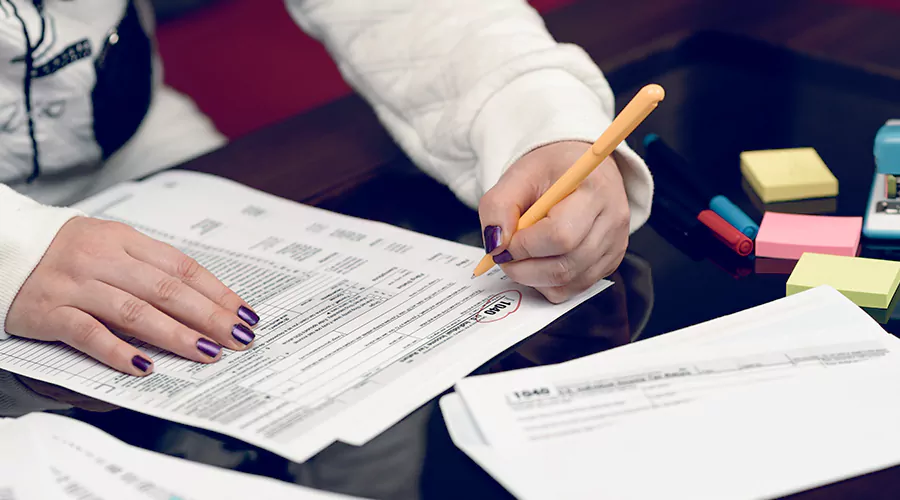How do I Prepare for Small Claim Hearing?
In the state of California, preparing for a small claims court hearing is important if you want to improve your chances of winning your case. Whether you are the person making the claim (the plaintiff) or defending yourself (the defendant), being organized and ready to present your side clearly will help you succeed. This article will walk you through simple steps on how to get ready for a small claims court hearing.

Organize your evidence
Evidence is the most important part of your small claims case in California. The judge will use your evidence to decide who wins. Here are some common types of evidence you might need:
Receipts and Invoices: These are used to prove any money you paid or received. For example, if you paid for something that wasn't delivered or was damaged, bring the receipt or invoice to court.
Contracts: If the dispute is over an agreement, a written contract will help prove what was agreed upon. This is especially useful in cases like unpaid rent, services not performed, or work that was not completed.
Photographs and Videos: If your case involves damage to property or faulty work, pictures and videos are great ways to show what happened.
Written Communication: Any emails, text messages, or letters between you and the other person can show that you tried to resolve the issue before going to court.
Make sure all of your evidence is organized. A simple way to do this is by keeping your papers in order by date, so the judge can easily understand the timeline of what happened. It is a good idea to make three copies of all your evidence: one for yourself, one for the judge, and one for the other person.
Prepare a Clear Statement
In California small claims court, you will have the chance to tell the judge your side of the story. It is helpful to prepare a clear, simple statement ahead of time that explains:
- Who you are - Introduce yourself briefly.
- What happened: Share the important facts of the case in the order they occurred.
- What you want: Clearly state what you are asking for, such as money owed or damages.
Keep your statement focused and to the point. There is no need to include unnecessary details. The more concise and organized your statement is, the easier it will be for the judge to understand your case.

Understand the laws that apply to your case
Knowing the California small claims laws that applies to your case is important. The law helps you explain why you think you are right, and it helps the judge see your side more clearly. For example, if your case is about a contract, look up basic contract laws in California. You do not have to be a lawyer to do this. There are many resources online, such as the California Courts Small Claims Self-Help page, where you can find simple explanations of the laws.
You can better prepare for questions the judge might ask by understanding the laws. You will also be able to respond more confidently if the other person tries to use the law against you.
Practice your presentation
Once you have your evidence and statement ready for small claim hearing in California, practice explaining your case. You can rehearse in front of a friend or family member to get more comfortable. Practicing will help you organize your thoughts and remember key points during the hearing. It also helps to be ready for questions the judge might ask about your evidence.
Bring witnesses if necessary
If someone saw the events you are talking about or has important information that could help your case, they can be a witness. Witnesses can strengthen your case by providing additional testimony. For example, if someone saw the damage to your property or heard a conversation where promises were made, their testimony can support your version of events.
Make sure your witnesses are available to attend the small claim court hearing on the set date in California. If a witness cannot attend in person, some courts allow for written statements or remote testimony, such as over a video call, but you will need to check the court's rules on this.
Arrive early and be professional
In California, on the day of your small claim hearing, it is important to arrive at the courthouse early. This will give you time to check in and find where your case will be heard. Being on time shows respect for the court and ensures you do not miss any important instructions. It is also important to dress professionally, even though small claims court is less formal than other types of courts. A respectful appearance and attitude can leave a good impression on the judge. Address the judge as "Your Honor" and listen carefully to any questions or instructions given during the hearing.
Consider settling the case
In the state of California, in many small claim cases, the court will give both sides a chance to settle the dispute before the hearing begins. This means both parties try to come to an agreement without going through the entire hearing. Settling can be faster and less stressful than going to trial, and it often leads to a solution that works for both sides. If you are open to settling, be prepared to negotiate and discuss possible solutions with the other party. However, if you feel that a settlement is not possible, be ready to present your case in court.

Bring all required documents
In California small claim hearing, do not forget to bring all necessary paperwork. Important documents include:
- Your filed claim form: This is the document you originally filed with the court to start the case.
- Proof of service: This shows that you properly notified the other party about the case. The court needs to know that the other party has been informed of the hearing date.
- Any court instructions or notices: These include any letters or emails the court sent you with details about the hearing, such as the date, time, and location.
By being organized and bringing everything you need, you can avoid delays and keep the focus on presenting your case.
Conclusion
Preparing for a small claims court hearing requires careful planning and organization. In order to increase your chances of success, make sure to organize all your evidence clearly and prepare a simple focused statement explaining your case.
Moreover, research the relevant laws that apply to your small claim case and practice your presentation so you are confident on the day of the hearing. Bring any witnesses who can support your case. By following these steps, you will be ready to present your case and improve your chances of achieving a favorable outcome in California small claims court.




